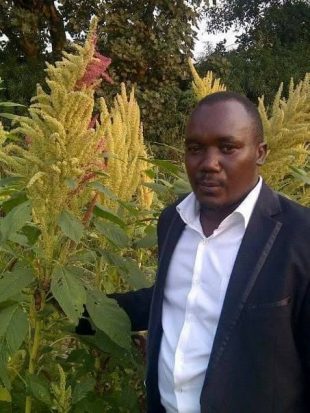No products in the cart.

This study analysed how science issues in Uganda are reported about in newspapers, online publications (web) as well as across the social media platforms: Facebook, YouTube and Twitter.
We studied stories published and posts made during the year 2018 (January 1st – December 31st).
The findings showed that majority (48.99%) of the 1,290 stories were published by newspapers with twitter posts turning second at 29.77%, online publications were third with 11.55%.
Facebook posts accounted for 8.45% while YouTube had the least posts (1.24%) as the table below shows;
| Publications | Newspapers | Online publications | YouTube | ||
| Total | 632 | 149 | 384 | 109 | 16 |
Sentiment: We noted that majority (77%) of the stories had positive sentiment, 13% were neutral while 11% had negative sentiment as shown in the chart below:
Issues Covered: The majority (47.24) of the stories covered science related issues on enterprise followed by communication (22.27%), agriculture (15.88%), and health (13.67%). Governance is the least reported about as shown in the graph below:
Gender of authors: We found out that out of the 781 stories published by both newspapers and online publications, the majority (61.59%) were authored by males. We found that 21.25% were written by females while 20.36% did not specify the sex of authors.
Source category: We studied the categories of people quoted in the stories published by newspapers and online publications during the period under review. The majority (56.08%) of the sources used were from experts. Sources from academicians followed with 8.96%. Statistics show that 6.53% were from Civil Society sources, Ministry of Science and Technology had 3.59% while Presidential Initiative on Science & Technology had the least (1.15%). Other sources accounted for 24.97% of the total sources used in newspaper and online publications.
Source Gender: We noted a similar trend just as recorded about the gender of authors. The majority (51.86) of the stories published by newspapers and online publications about science related issues in Uganda used male sources compared to female sources (8.58%).
Type of Coverage: The majority of the stories published by both newspapers and online publications were news stories (62%). Feature stories followed with 20% while advertorials constituted 08%. Editorials were the least as detailed in the full report.
Region: The study results show that majority (81%) of the stories published by both newspapers and online publications covered the central part of Uganda. Western region followed with 8% while Eastern had 6%. Northern region had the least (5%).
Organizations mentioned most across all platforms
We captured the organizations and agencies that were mentioned most in the stories and posts on issues related to science in Uganda. Such organizations included; Uganda National Council for Science and Technology, ScieDev, Ministry of Science, Technology and Innovation, Presidential Initiative on Science and Technology, FAO, NARO, NAADS.
Engagement and posting of social media
Posting on Facebook: There were 109 posts made about science related issues on facebook which generated 1,133 comments, 675 shares (1,808 total engagement). These facebook statistics were captured last on April 20, 2019.
Posting on Twitter: Twitter is the other social network that we crawled to find out how issues concerning science where posted about and what engagement was achieved.
The table below shows the number of tweets made about science related issues in Uganda on Twitter during the year 2018 (January to December 2018).
| No. of Tweets | Reply | Retweet | Favorite | Total engagement |
| 384 | 1,239 | 2,331 | 1,521 | 5,313 |
Note: Statistics are as of 20/04/2019
Download & Read full Research Report on Media Coverage and Communication of Science Issues in Uganda
1 responses on "Research Report: Media Coverage and Communication of Science Issues in Uganda"
Leave a Message
You must be logged in to post a comment.






plaquinol plaquenil uses